PREVIOUS
LGBTQ+ Rights in India – Part 1
November 17 , 2023
812 days
6083
0
(இதன் தமிழ் வடிவத்திற்கு இங்கே சொடுக்கவும்)
LGBTQ+ Rights in India
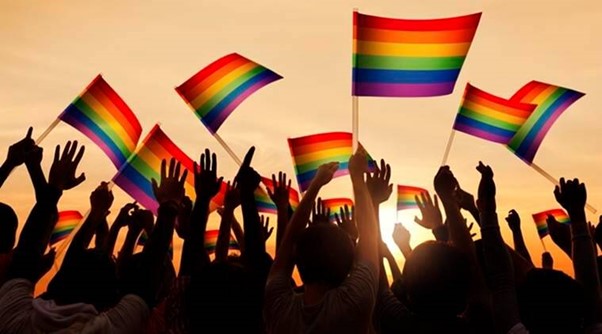
- Lesbian, gay, bisexual and transgender (LGBT) people in India are afforded greater protections than those in many other Asian countries.
- However, Indian LGBT citizens may still face social and legal difficulties not experienced by non-LGBT people.
- There are no legal restrictions against gay sex or gay expression.
- Same-sex couples have equal cohabitation rights, colloquially known as live-in relationships.
- However, India does not currently recognize same-sex marriage.
- The Transgender Persons (Protection of Rights) Act, 2019 recognizes the right to self-perceived gender identity.
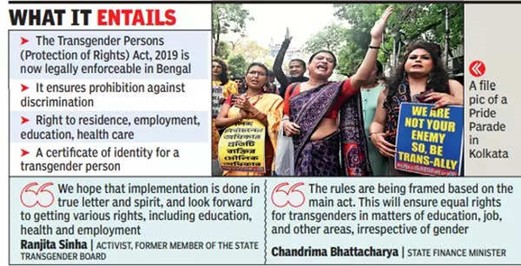
- The identification documents indicating gender as male or female can be issued by government agencies once a certificate is provided by a relevant medical official.
- Transgender citizens have a constitutional right to register themselves under a third gender.
- In the 2010s, LGBT people in India increasingly gained tolerance and acceptance, especially in large cities.
- Amidst strong political movements in favour of LGBT rights, people are more accepting of same-sex relationships, with around three out of four Indians supporting them according to a 2019 opinion poll.
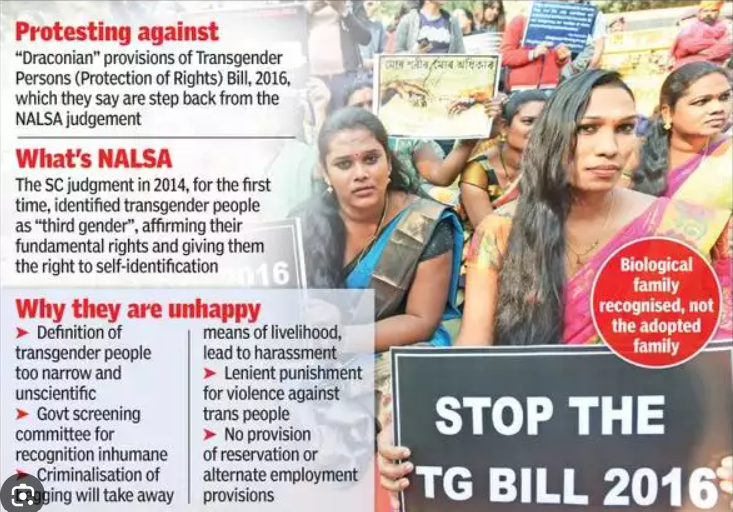
General Definition
- Same-sex marriage is the legal recognition of a marriage between two individuals of the same sex.
- It grants same-sex couples the same legal and social recognition, rights, and privileges that are traditionally associated with marriage.
- It is including property rights, inheritance rights, and the ability to make decisions for each other in medical emergencies.
- The recognition of same-sex marriage varies around the world, with some countries legalizing it while others do not.
- The issue has been the subject of much debate and controversy, with arguments for and against same-sex marriage based on religious, cultural, social, and legal considerations.
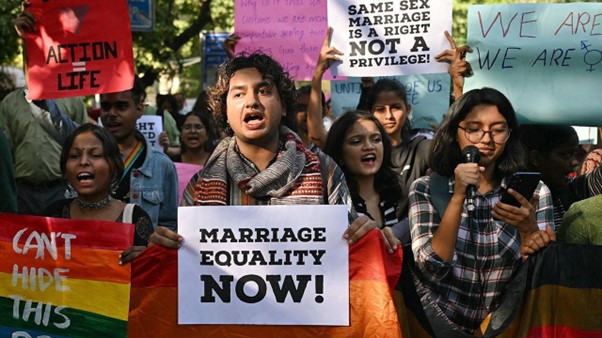
Opposition
- Traditional religious groups have opposed homosexual marriages as they believe them to be against the natural order.
- In some countries, homosexuality itself is criminalized and same sex marriage looks a distant dream.
Historical Background
- Hinduism acknowledges a third gender.
- There are certain characters in the Mahabharata who, according to some versions of the epic, change genders, such as Shikhandi.
- He was sometimes said to be born as a female but identifies as male and eventually marries a woman.
- Bahuchara Mata is the goddess of fertility, worshipped by hijras as their patroness.
- The Nāradasmṛti and the Sushruta Samhita, two important Sanskrit texts relating to dharma and medicine, respectively, declare homosexuality to be unchangeable and forbid homosexuals from marrying a partner of the opposite sex.
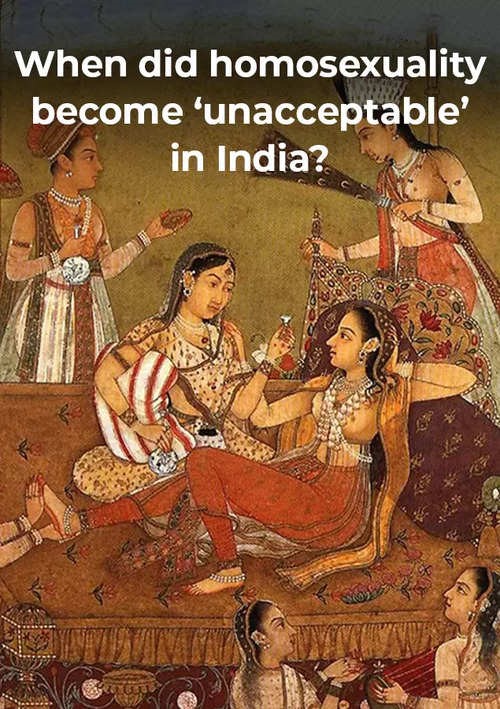
- However, in another Hindu text, the Manusmriti, there are various punishments for homosexuality in certain cases.
- The Hindu Khajuraho temples, famous for their erotic sculptures, contain several depictions of homosexual activity.
- During the Mughal Empire, a number of the pre-existing Delhi Sultanate laws were combined into the Fatawa-e-Alamgiri, mandating several types of punishments for homosexuality.
- The Codification of criminalization of homosexual activity was enacted by of Section 377 in the Indian Penal Code in 1860 by the British.
- It is stood for more than 70 years after Indian independence.
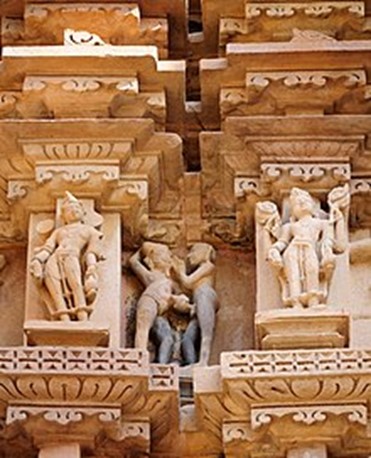
Timeline for Same Sex Marriage Post independence
- 2001: The Naz Foundation filed a public interest litigation (PIL) in the Delhi High Court challenging the constitutionality of Section 377.
- 2009: The Delhi High Court declared Indian Penal Code Section 377 unconstitutional and decriminalized homosexuality.
- This decision of the High Court was overturned by the Supreme Court of India in 2013.
- It has reinstated Section 377.
- 2018: Supreme Court’s constitutional bench, in Navtej Singh Johar v. Union of India judgment, overturned the previous decision and decriminalized homosexuality once again.
- 2023: Supreme Court (Supriya Chakraborty & Abhay Dang v. Union of India) ruled in a 3:2 verdict against legalizing same-sex marriage in India.
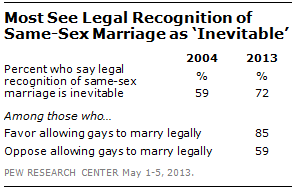
Important cases related to LGBTQ+ Rights
NALSA v Union of India (April 15, 2014)
- In this case, the Supreme Court agreed with arguments it had rejected earlier in the Suresh Koushal case.
- In ‘Suresh Koushal v Union of India’ it upheld the constitutional validity of Section 377 of the Indian Penal Code that criminalized homosexuality.
- However, in the NALSA case, the Supreme court upheld the right of transgender persons to decide their gender.
- It ordered the governments to grant legal status to gender identities, such as male, female or the third gender.
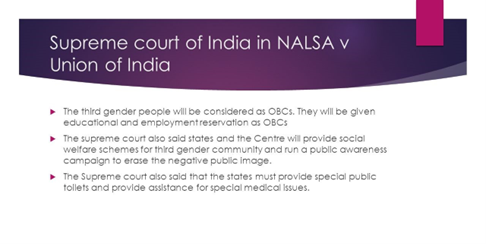
KS Puttaswamy v Union of India (2017)
- In 2017, a nine-judge Bench of the Supreme Court unanimously recognized the right to privacy as a fundamental right under Article 21 of the constitution.
- The apex court held that the rights of the LGBT population are real rights founded on sound constitutional doctrine.
- They inherit the right to life, dwell in privacy and dignity and constitute the essence of liberty and freedom.
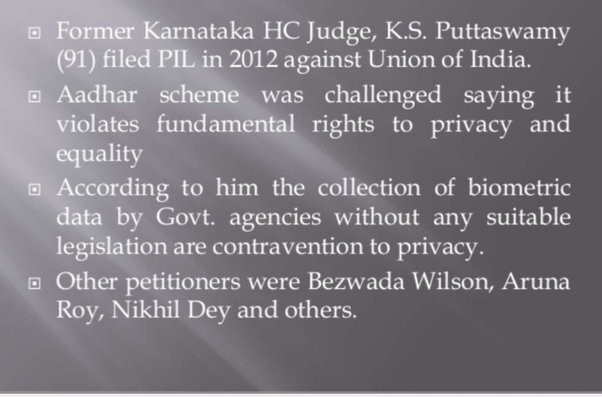
Shafin Jahan v Union of India (2018)
- In March 2018, it set aside a Kerala High Court judgment that annulled the marriage of a 24-year-old woman who had converted to Islam to marry.
- It upheld the right to choose one’s partner as a facet of the fundamental right to liberty and dignity.
Shakti Vahini v Union of India (2018)
- The SC in March 2018 issued directives to prevent honor killings by the decree of khap panchayats.
- It also issued directives to protect persons who married without the panchayat’s approval.
- It recognized the right to choose a life partner as a fundamental right.
- The right to choose life partner have sanction of the constitutional law under Articles 19 and 21.
Navtej Johar v Union of India (2018)
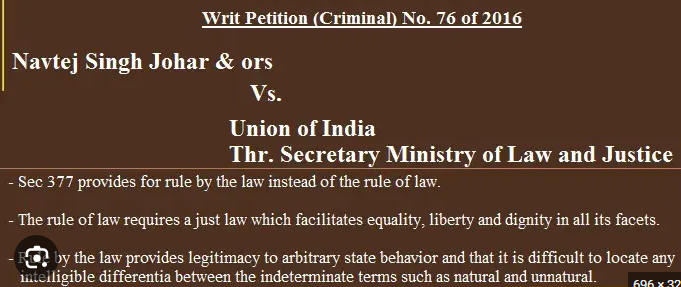
- A five-judge Constitution Bench struck down IPC Section 377 as it criminalized homosexuality.
- It decriminalized all consensual sex among adults.
Deepika Singh vs Central Administrative Tribunal (2022)
- The SC in August 2022 ruled in favour of a woman being denied maternity leave for her first biological child as she had already availed the benefit for her two non-biological children.
- The verdict recognized atypical families, and queer marriages.
Supriya Chakraborty & Abhay Dang v. Union of India (2023)
- Above cases are a collection of landmark cases of the Supreme Court of India.
- They were filed to consider whether to extend right to marry and establish a family to sexual and gender minority individuals in India.
- A five-judge Constitution Bench, consisting of Chief Justice of India D.Y. Chandrachud, Justice S.K. Kaul, Justice S.R Bhat, Justice Hima Kohli and Justice P.S. Narasimha, heard 20 connected cases brought by 52 petitioners.
- The petitioners, couples and individuals from sexual and gender minority communities, request recognition of the right to marry and establish a family based on protections from discrimination, the right to equality, dignity, personal liberty, privacy, and personal autonomy, and freedom of conscience and expression.
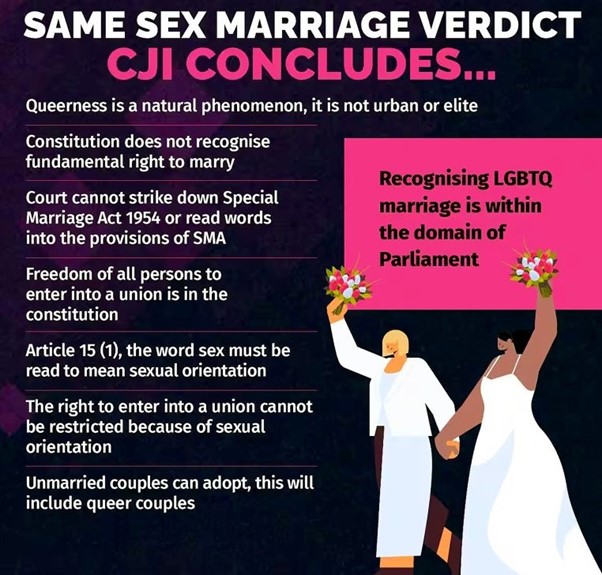
Case summary
- The petitioners, consisting of couples and individuals from sexual and gender minority communities, requested the Supreme Court to recognize the marriage between any two persons, regardless of sexual orientation and gender identity.
- They filed under the following marriage laws, by enforcing the fundamental rights guaranteed under Articles 14, 15, 19, 21 and 25 of the Indian Constitution:
- Special Marriage Act of 1954
- Hindu Marriage Act of 1955
- Foreign Marriage Act of 1969
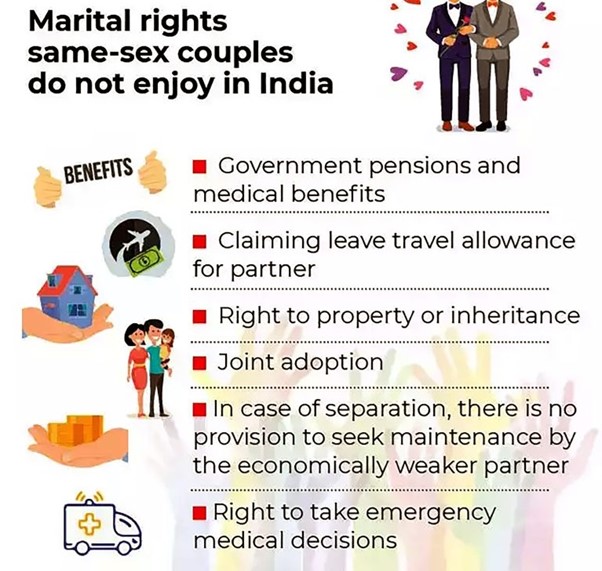
- Declare the notice and objection provisions of the Special Marriage Act and Foreign Marriage Act as void, by enforcing the fundamental rights guaranteed under Articles 14, 15, 19 and 21 of the Indian Constitution.
- Declare that a foreign-origin sexual and gender minority spouse of an Indian Citizen or Overseas Citizen of India is entitled to apply for registration as an Overseas Citizen of India under the Citizenship Act of 1955.
- Declare that a person can nominate anyone in the place of ‘next of kin’ under all relevant laws by enforcing the fundamental rights guaranteed under Articles 14, 15, 19 and 21 of the Indian Constitution.
- The respondent, the Bharatiya Janata Party-led Union Government, opposed the request.
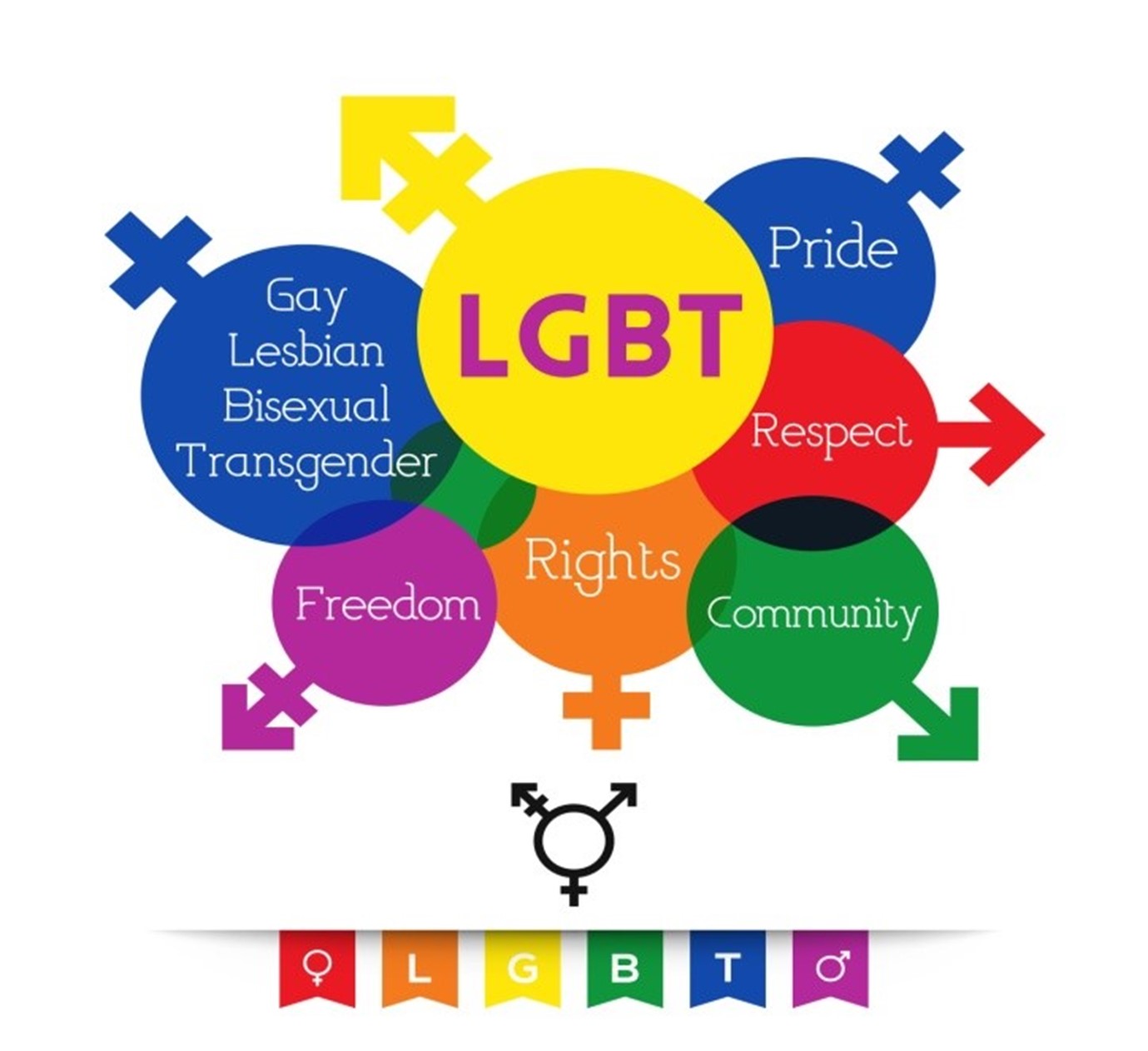
- It is including the extension of the right to marry and establish a family to sexual and gender minority individuals in India, arguing that non-recognition of the rights of sexual and gender minority individuals to marry and establish a family does not violate the fundamental rights guaranteed under Articles 14, 15, 19, 21 and 25 of the Indian Constitution.
- Legitimate state interests are constitutionally permissible grounds for limiting the legal recognition of marriage following the Directive Principles of State Policy and the Fundamental Duties of the Indian Constitution.
- As the Indian marriage laws do not recognize same-sex marriages, a foreign-origin sexual or gender minority spouse of an Indian Citizen or Overseas Citizen of India is entitled to apply for registration as an Overseas Citizen of India under the Citizenship Act of 1955.
- The challenge to notice and objection provisions of the Special Marriage Act and Foreign Marriage Act and adoption regulations unrelated to same-sex marriage.
- Therefore, the Supreme Court should exclude those matters from the current Case.
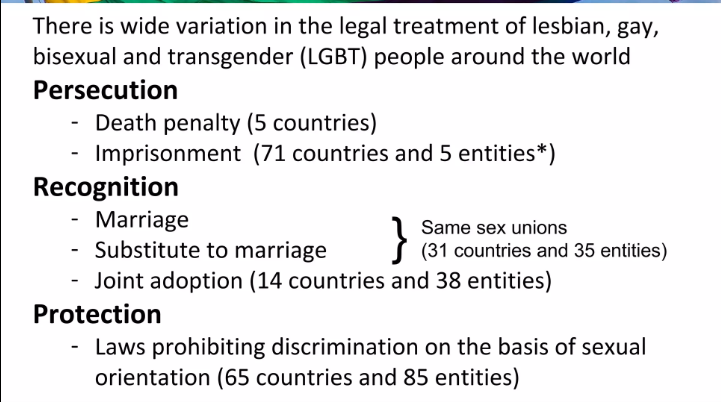
Leave a Reply
Your Comment is awaiting moderation.


